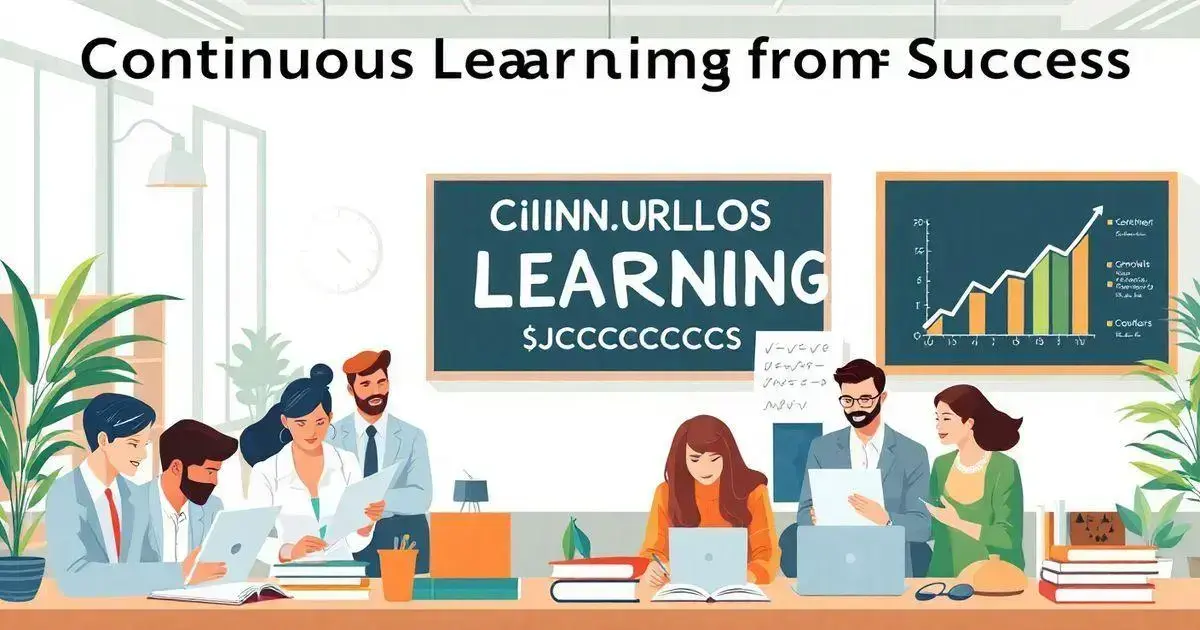The Importance of Skills for Career Advancement
The importance of skills for career advancement cannot be overstated. In today’s fast-paced job market, employers seek candidates who are not only qualified but also equipped with relevant skills that meet industry demands. Developing these skills is crucial for not just landing a job, but for long-term career success.
One of the key aspects of career growth is the ability to adapt. Staying current with industry trends and acquiring new skills can help professionals remain competitive. Skills related to technology, communication, and problem-solving are especially sought after.
Moreover, individuals who actively pursue skill development often find more opportunities for advancement. Employers are more likely to promote employees who take the initiative to enhance their skill set. This proactive approach can lead to greater job satisfaction and stability in an ever-changing job landscape.
Top Skills You Need for Career Growth

Top skills you need for career growth are critical to achieving success in your professional journey. Skills for career advancement such as effective communication are key; they allow you to express your ideas clearly and collaborate with others.
Time management is another essential skill as it helps you prioritize tasks and meet deadlines. In addition, having problem-solving abilities can set you apart, enabling you to analyze situations and come up with solutions efficiently.
Furthermore, leadership skills are crucial as they enhance your ability to motivate and manage teams. Skills for career advancement like technical expertise related to your industry are also vital, ensuring you stay relevant in a rapidly changing work environment. Lastly, networking skills can lead to valuable connections and open doors for new opportunities.
How to Identify Skills Gaps
Developing Skills for Career Advancement

Developing skills for career advancement is an important step for anyone looking to grow professionally.
First, it is essential to identify the skills that are most relevant to your field. Researching industry trends can help you understand what employers are looking for. Consider enhancing your technical skills by taking online courses or attending workshops.
In addition to technical skills, soft skills like communication, teamwork, and adaptability are equally critical. These skills can be developed through practice and experience, such as participating in group projects or volunteering.
Setting clear goals is also a vital part of skill development. Create a plan that outlines the skills you want to acquire and a timeline for achieving them. Regularly reviewing your progress will help keep you motivated and focused on your career advancement.
Networking: A Key Skill for Career Advancement
Networking is a key skill for career advancement. It involves building and maintaining professional relationships that can help you in your career. By connecting with others in your field, you gain access to valuable information, resources, and opportunities that contribute to skills for career advancement.
To start networking, attend industry events like conferences and workshops. These events allow you to meet others with similar interests and goals. Additionally, using social media platforms like LinkedIn can help you connect with professionals worldwide.
It’s important to approach networking with a genuine interest in others. Focus on building relationships rather than just seeking favors. Offer assistance and share your knowledge, as this can create a mutually beneficial connection.
Continuous Learning for Career Success

Continuous learning for career success is essential in today’s fast-paced world. It means always seeking new knowledge and skills to stay relevant in your field. This can include attending workshops, taking online courses, or reading books related to your industry. Embracing new technologies and methods is vital for keeping up.
Moreover, setting personal learning goals can help you stay focused. Decide what skills you want to develop over the next year and create a plan to achieve them. Regularly reviewing these goals will keep you accountable and motivated.
Networking with others can also enhance your learning. Joining professional groups allows you to share ideas and gain insights from others’ experiences. Engage in discussions and ask questions to learn from peers.
Measuring Your Progress in Skill Development
Frequently Asked Questions about Career Advancement
What are the most important skills for career advancement?
Key skills include effective communication, problem-solving, adaptability, and technical abilities relevant to your industry.
How can I identify my skills gaps?
You can identify skills gaps by comparing your current skills with job descriptions in your field and seeking feedback from peers.
What is the role of networking in career growth?
Networking helps you build professional relationships that can provide insights, opportunities, and support in your career journey.
How can I develop my skills for career success?
You can develop your skills through online courses, workshops, mentoring, and hands-on experience in related projects.
Why is continuous learning important?
Continuous learning keeps you updated with industry trends and enhances your skills, making you more competitive in the job market.
How do I measure my progress in skill development?
You can measure your progress by setting clear goals, tracking achievements, seeking feedback, and conducting self-assessments.